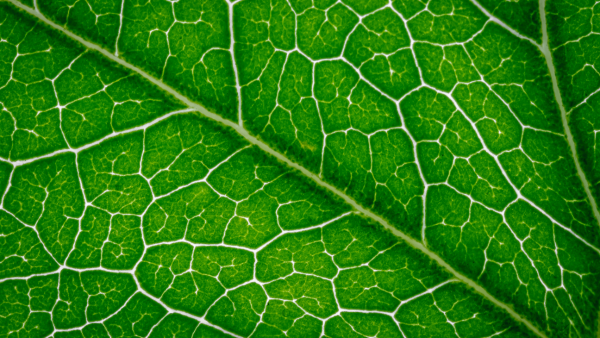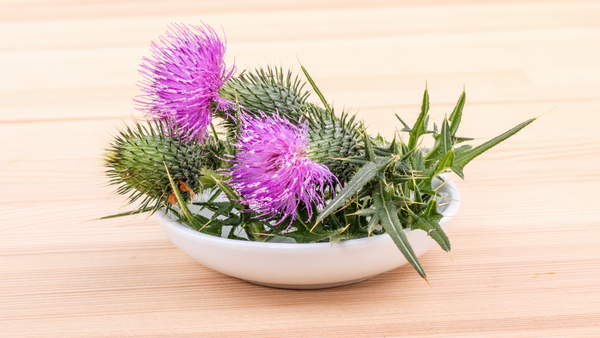Fatty liver is a widespread disease: around a third of German adults have an enlarged liver due to fatty deposits. [1]
Fatty liver disease is divided into alcoholic fatty liver disease (AFLD) and non-alcoholic fatty liver disease (NAFLD). Until a few decades ago, non-alcoholic fatty liver disease was largely unknown. However, it is now responsible for the widespread prevalence of the disease.
Alcoholic fatty liver disease is, as the name suggests, caused by excessive alcohol consumption. The main cause of non-alcoholic fatty liver disease, on the other hand, is increased fructose consumption. Fructose and alcohol are metabolized in the liver in a very similar way.

The liver is a central metabolic organ with important tasks in fat, protein, sugar and cholesterol metabolism . If fat accumulates in the liver, it can no longer carry out its tasks properly. Fatty liver disease therefore leads to increased blood fat levels (triglycerides) and bad cholesterol levels. NAFLD is also considered a risk factor for type 2 diabetes and cardiovascular disease. [2]
Fatty liver usually does not cause any obvious symptoms, but is often accompanied by symptoms of metabolic syndrome, which is manifested by increased waist circumference, high blood pressure , increased triglycerides, low HDL cholesterol and, in the late stages, increased blood sugar.
The accumulation of fat in the liver is reversible. However, if the fatty liver progresses, liver damage and severe inflammation occur in the liver; this is known as liver cirrhosis. This can lead to scarring, which can permanently limit liver function.
Diet and other lifestyle factors play an important role in the development of fatty liver. Micronutrients also appear to support the breakdown of fat in the liver and counteract inflammation in the liver.
L-Carnitine
L-carnitine is needed for the transport of fatty acids into the mitochondria, the power plants of our cells. It appears to be important for the detoxification of the liver and to support the function of antioxidant enzymes.
The body can produce L-carnitine itself from the amino acids lysine and methionine. If liver function is impaired, L-carnitine can often no longer be produced effectively.
Studies suggest that L-carnitine may counteract fatty liver disease and improve liver function. L-carnitine also appears to be able to improve sugar, blood fat and inflammation levels. [3]
Reishi
Reishi has long been used in traditional Chinese medicine to treat liver diseases. The medicinal mushroom is said to support liver function, promote liver detoxification and counteract liver problems. [4]
The triterpenes contained in Reishi appear to be responsible for the effect. Reishi is also rich in beta-glucans. Beta-glucans are soluble fibers that presumably have a positive effect on the liver. There is evidence that beta-glucans could reduce cholesterol production in the liver and thus lower cholesterol levels.
Choline
Choline is needed for the transport of fats in the blood. Choline can therefore promote the removal of fats from the liver and probably counteract fatty liver disease. [5]
The body can produce choline itself, but only to a very limited extent. It must be supplied through food and is therefore considered semi-essential.
Choline is only found in large quantities in a few foods. Liver and egg yolk are particularly rich in choline.
Omega-3
A fatty liver is highly inflammatory. Omega-3 fatty acids, on the other hand, have anti-inflammatory properties. They can therefore probably counteract the inflammation that accompanies a fatty liver.
Studies suggest that omega-3 fatty acids may improve liver function. Data also indicate that omega-3 fatty acids may be able to lower blood lipid levels (triglycerides). [6]
OPC
Oligomeric proanthocyanidins (OPC) have anti-inflammatory and antioxidant properties. It is therefore suspected that OPC could help counteract the damage caused by fatty liver.
In animal studies, OPC was able to reduce fat deposits in the liver and improve liver values. [7] However, this has yet to be confirmed in human clinical studies.
Bitter substances
Bitter substances can stimulate bile production and also have antioxidant properties. This means they can probably counteract damage caused by free radicals and inflammation in the liver. Some bitter substances are believed to be able to lower blood fat and cholesterol levels. [8]

Conclusion: Micronutrients are useful helpers for fatty liver
Certain micronutrients appear to be able to counteract fat deposits in the liver. They can also counteract inflammation and oxidative stress that accompany fatty liver disease.
[1] https://www.deutsche-leberstiftung.de/presse/pressemappe/leberkrankenen/fettleber/
[2] https://www.ncbi.nlm.nih.gov/books/NBK541033/
[3] https://pubmed.ncbi.nlm.nih.gov/28262196/
[4] https://pubmed.ncbi.nlm.nih.gov/23796220/
[5] https://www.ncbi.nlm.nih.gov/pmc/articles/PMC3601486/
[6] https://www.ncbi.nlm.nih.gov/pmc/articles/PMC5743581/
[7] https://www.sciencedirect.com/science/article/abs/pii/S0006291X15002193?via%3Dihub

















